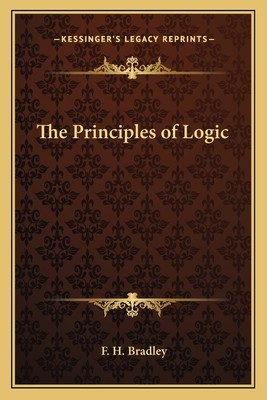
- We will send in 10–14 business days.
- Author: F H Bradley
- Publisher: Kessinger Publishing
- ISBN-10: 1162644230
- ISBN-13: 9781162644233
- Format: 15.2 x 22.9 x 2.6 cm, minkšti viršeliai
- Language: English
- SAVE -10% with code: EXTRA
Reviews
Description
1883. Francis Herbert Bradley, English philosopher and absolute idealist, his Ethical Studies criticized Mill's utilitarianism and defended an ethics of self-realization, understood as the conquest of the bad self by the good. Bradley's metaphysical views, akin to those of Hegel, with a special emphasis on the internal relations of the Absolute are developed at length in Appearance and Reality and defended in this volume of Essays on Truth and Reality. Bradley writes in the preface: The following work makes no claim to supply any systematic treatment of Logic. I could not pretend to have acquired the necessary knowledge; and in addition I confess that I am not sure where Logic begins or ends. I have adopted the title Principles of Logic, because I thought that my inquiries were mainly logical, and, for logic at least, must be fundamental. See other titles by this author available from Kessinger Publishing.
EXTRA 10 % discount with code: EXTRA
The promotion ends in 21d.17:39:35
The discount code is valid when purchasing from 10 €. Discounts do not stack.
- Author: F H Bradley
- Publisher: Kessinger Publishing
- ISBN-10: 1162644230
- ISBN-13: 9781162644233
- Format: 15.2 x 22.9 x 2.6 cm, minkšti viršeliai
- Language: English English
1883. Francis Herbert Bradley, English philosopher and absolute idealist, his Ethical Studies criticized Mill's utilitarianism and defended an ethics of self-realization, understood as the conquest of the bad self by the good. Bradley's metaphysical views, akin to those of Hegel, with a special emphasis on the internal relations of the Absolute are developed at length in Appearance and Reality and defended in this volume of Essays on Truth and Reality. Bradley writes in the preface: The following work makes no claim to supply any systematic treatment of Logic. I could not pretend to have acquired the necessary knowledge; and in addition I confess that I am not sure where Logic begins or ends. I have adopted the title Principles of Logic, because I thought that my inquiries were mainly logical, and, for logic at least, must be fundamental. See other titles by this author available from Kessinger Publishing.


Reviews